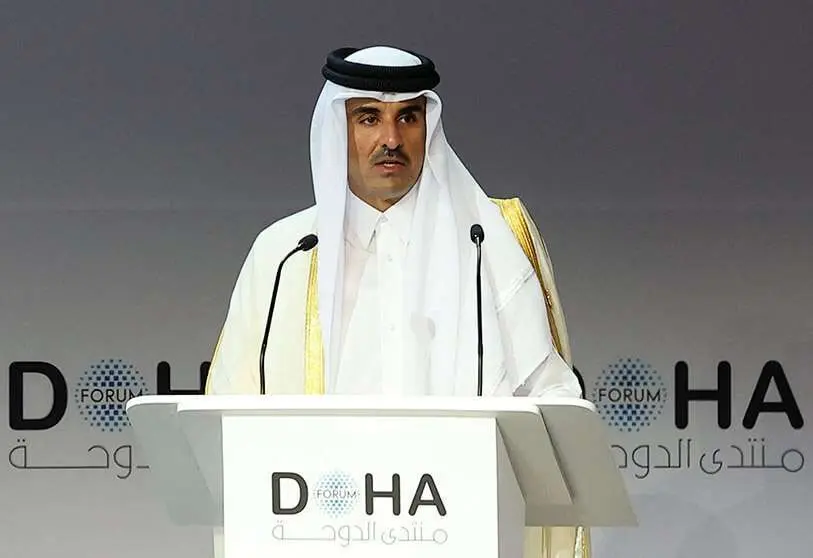Qatar's Emir: "A new Arab Spring may emerge"

Tamim bin Hamad Al Thani, emir of Qatar, has affirmed to the French media Le Point that the country has no relationship with the Muslim Brotherhood organisation and that the causes for a (new) 'Arab Spring' are still present.
In other words, the countries of the Arab world could witness events similar to those of the uprisings that shook the region in 2011. "The root causes of the 'Arab Spring' are unfortunately still there. Poverty, unemployment, ... Have we solved these problems? No, on the contrary, they have worsened," said the emir.
The relationship between Qatar and the Muslim Brotherhood still resonates strongly in political and social spheres despite the fact that the country has taken pains to deny links with the Brotherhood on several occasions in various public appearances.

Indeed, just a day after Tamim bin Hamad Al Thani met with Le Point, he was visited in Doha by Abdel Fattah el-Sisi, President of Egypt, the birthplace of the Brotherhood and the country's largest opposition group. His visit took place in the context of the Economic Forum organised by Qatar.
An image that only a few years ago was unthinkable due to relations between Cairo and Doha, which were severed when al-Sisi came to power in 2014. His predecessor, Mohamed Morsi, however, was the visible face of the Muslim Brotherhood and maintained excellent relations with Qatar, Saudi Arabia and its Wahhabi splinter.
At the time, the citizens' and political movement that took place in 2011, and which in Egypt had a greater resonance during 2012 and 2013, had a strong impact on the world. Young people in countries such as Egypt, Tunisia, Syria and Libya took to the streets to demand more rights, social justice and political reform. However, the petitions that were produced publicly were disregarded by both political leaders and organisations that were supposed to support this civil sector, leading to social disenchantment and triggering serious events and even a war that continues today in Syria. In fact, Tunisia has been the only country to manage to 'stabilise' its situation through reforms and social dialogue.

Rupture with neighbouring countries
In 2017, Qatar would suffer another small political earthquake by breaking off relations with neighbouring countries such as Saudi Arabia, Egypt and the United Arab Emirates, the cause of which was precisely the public support that the country seemed to show for the Muslim Brotherhood from Doha. In 2021, ties were resumed and Doha appeared committed to establishing closer ties with the Gulf blocs and leaving behind a recent past of head-on clashes and regional economic and diplomatic isolation.
Today, Bin Hamad Al Thani says: "There are no such ties. There are no active members of the Muslim Brotherhood or related organisations in Qatar".
Qatar is undoubtedly trying to protect its foreign policy. For example, it currently has close ties with the United States. A bond it would not want to break by publicly supporting the Brotherhood - considered by some countries to be a terrorist organisation - although, as the emir says: "Our country is a great ally of the United States and the West in general, but our main importer of liquefied natural gas (LNG) is China".

Football's claim
It is also worth noting that Qatar will host the World Cup in November this year. It will be then that the whole world will turn its eyes to the emirate.
Then the world will be aware of the complexity that surrounds Qatar, a country that straddles tradition and Western luxury. "We are the first Arab country to host such a world event. It is very important for the youth, especially in the Arab world," says the emir about the organisation of the tournament.








